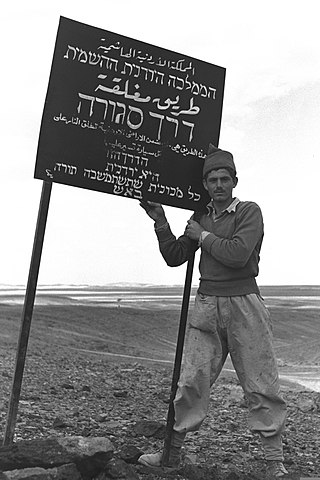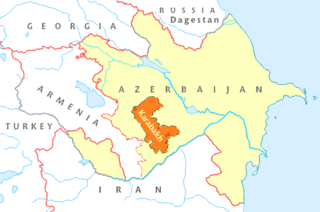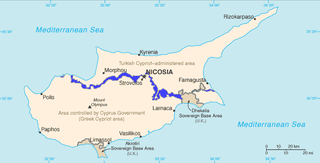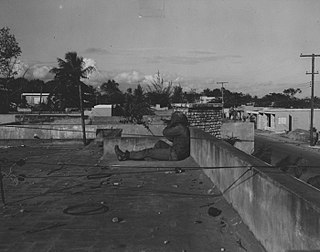
United Nations Security Council Resolution 1696, adopted on July 31, 2006, after expressing concern at the intentions of the nuclear programme of Iran, the Council demanded that Iran halt its uranium enrichment programme.

United Nations Security Council Resolution 109 was adopted on 14 December 1955. After being instructed by the General Assembly to consider the applications for membership of Albania, Austria, Bulgaria, Cambodia, Ceylon, Finland, Hungary, Ireland, Italy, Jordan, Laos, Libya, Nepal, Portugal, Romania, and Spain, the Security Council recommended all 16 countries for admission to the United Nations.
United Nations Security Council Resolution 143 was adopted on July 14, 1960. With Congolese requests for assistance in front of him, following the Mutiny of the Force Publique, Secretary-General of the United Nations Dag Hammarskjöld had called a meeting for the evening of July 13, acting under Article 99 of the Charter. After the Secretary-General's report and a request for military assistance by the President and Prime Minister of the Republic of the Congo (Leopoldville) to protect its territory, the Council called upon Belgium to withdraw its troops from the territory and authorized the Secretary-General to take the necessary steps to provide the Government with such military assistance that the national security forces may be able to meet fully their tasks. The Council asked the Secretary General to report to the Security Council as appropriate.

United Nations Security Council Resolution 201, adopted unanimously on March 19, 1965, after reaffirming its previous resolutions on the topic and thanking all that nations who had contributed to it, extended the stationing of the United Nations Peacekeeping Force in Cyprus for another three months, to end on June 26, 1965.

United Nations Security Council Resolution 203, adopted on May 14, 1965, in the face of growing instability, a developing civil war and the probability of foreign intervention in the Dominican Republic, the Council called for a strict cease-fire and invited the Secretary-General to send a representative to the Dominican Republic to report to the council on the present situation.

United Nations Security Council Resolution 207, adopted unanimously on August 10, 1965, after a receiving report by the Secretary-General stating that recent developments in Cyprus had increased tension on the island, the Council reaffirmed its Resolution 186 and called upon all parties to avoid any action which would be likely to worsen the situation.
United Nations Security Council Resolution 264 was adopted on March 20, 1969, after a General Assembly resolution terminated the mandate of South West Africa (Namibia).

United Nations Security Council resolution 874, adopted unanimously on 14 October 1993, reaffirmed sovereignty and territorial integrity of the Azerbaijani Republic and of all other States in the region, called for the preservation of the ceasefire, cessation of hostilities and withdrawal of forces from recently occupied districts of the Republic of Azerbaijan, and reaffirmed resolutions 822 (1993) and 853 (1993). The Council expressed its concern at "...the conflict in and around the Nagorny Karabakh region of the Azerbaijani Republic, and of the tensions between the Republic of Armenia and the Azerbaijani Republic...", and called upon the parties to observe the ceasefire agreed with by the government of Russia and OSCE Minsk Group.

United Nations Security Council Resolution 340 was adopted on October 25, 1973, during the Yom Kippur War. It was passed after the Security Council was informed of the apparent failure of UNSCR 338 and UNSCR 339 to end the fighting.

United Nations Security Council Resolution 366 was adopted unanimously on December 17, 1974, after its previous resolutions and General Assembly Resolution 2145 which terminated South Africa's Mandate over Namibia. The Security Council was concerned with South Africa's continued occupation of the territory and its brutal repression of its people.

United Nations Security Council Resolution 502 was a resolution adopted by the United Nations Security Council on 3 April 1982. After expressing its concern at the invasion of the Falkland Islands by the armed forces of Argentina, the council demanded an immediate cessation of hostilities between Argentina and the United Kingdom and a complete withdrawal by Argentine forces. The council also called on the governments of Argentina and the United Kingdom to seek a diplomatic solution to the situation and refrain from further military action.

United Nations Security Council resolution 1565, adopted unanimously on 1 October 2004 after recalling all previous resolutions on the situation in the Democratic Republic of the Congo, extended the mandate of the United Nations Mission in the Democratic Republic of Congo (MONUC) until 31 March 2005 and authorised an additional deployment of 5,900 troops and police. It reaffirmed the commitment to respect the “sovereignty, territorial integrity and political independence [sic]” of Congo and States in the region.

United Nations Security Council Resolution 2014 was unanimously adopted on 21 October 2011.

United Nations Security Council Resolution 2022 was unanimously adopted on 2 December 2011, after recalling resolutions 2009.

United Nations Security Council Resolution 2026 was unanimously adopted on 14 December 2011.

United Nations Security Council Resolution 2027 was unanimously adopted on 20 December 2011, after recalling resolutions 1719 (2006), 1791 (2007), 1858 (2008) and 1902 (2009) and 1959 (2010). It mandated that the UNSC will "continue its support for the Government of Burundi in the areas of socio-economic development, reintegrating conflict-affected populations and deepening the country’s regional integration."

United Nations Security Council Resolution 2028 was unanimously adopted on 21 December 2011 after recalling resolution 338 (1973).
United Nations Security Council resolution 2080, adopted in 2012, extended the terms of five judges on the International Criminal Tribunal for Rwanda (ICTR), on the Rwanda genocide. In the resolution, the Security Council also asked for updates on the transition of the ICTR to the International Residual Mechanism for Criminal Tribunals (IRMCT), which was to finish the remaining tasks of the ICTR and a similar tribunal on war crimes and genocide in the Yugoslav wars.

The Mission of the Representative of the Secretary-General in the Dominican Republic (DOMREP) was a peacekeeping operation established in 1965 by the UN to observe the ceasefire agreement between the two de facto authorities in the Dominican Republic during the Dominican Civil War. DOMREP was instructed to report any breaches of the agreements between the Constitutionalists led by Juan Bosch and Francisco Caamaño, and Loyalists commanded by Elías Wessin y Wessin and backed by the United States. Once the new Dominican constitutional government was formed, DOMREP withdrew.

United Nations Security Council Resolution 2535 is a resolution that attempts to further support the concept of including youths in peace processes.

















